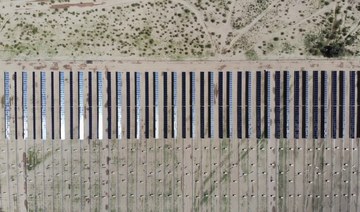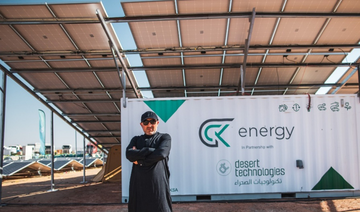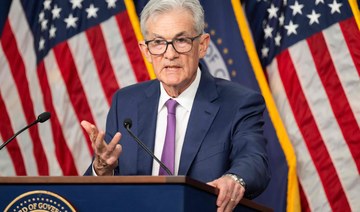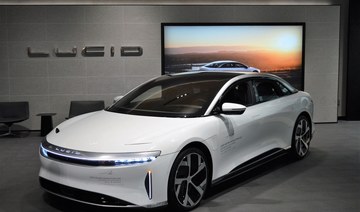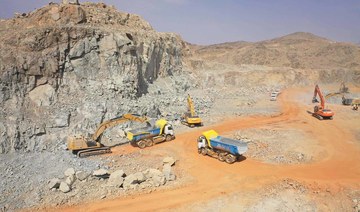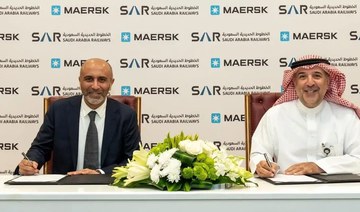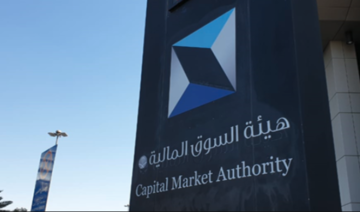LOS ANGELES: Global solar power developers are slowing down project installations because of a surge in costs for components, labor, and freight as the world economy bounces back from the coronavirus pandemic, according to industry executives and analysts interviewed by Reuters.
The situation suggests slower growth for the zero-emissions solar energy industry at a time world governments are trying to ramp up their efforts to fight climate change, and marks a reversal for the sector after a decade of falling costs.
It also reflects yet another industry shaken up by the supply chain bottlenecks that have developed in the recovery from the coronavirus health crisis, which has businesses from electronics manufacturers to home improvement retailers experiencing huge delays in shipping along with soaring costs.
“The narrative is shifting,” S&P Global Platts clean energy analyst Bruno Brunetti said in an interview, citing the costs inflation.
Among the biggest headwinds for solar is a tripling in prices for steel, a key component in racks that hold solar panels, and polysilicon, the raw material used in panels.
Soaring shipping freight rates along with higher costs for fuel, copper and labor are also pinching project costs, company executives said.
Research firm IHS Markit warned last week that its global solar installation forecast for the year could slide to 156 gigawatts from a current projection of 181 GW if price pressures do not ease.
Wall Street has also punished the sector in recent weeks, sending the MAC Global Solar index down 24 percent this year after it tripled in 2020.
Project developers in the United States, the No. 2 solar market behind China, told Reuters they are struggling to price projects for 2022 given the lack of clarity on how long price spikes will last.
Solar engineering, procurement and construction firm Swinerton Renewable Energy said some of its customers have also put “soft holds” on projects slated to start later this year while they wait to see if prices trend down.
“We’ve just become accustomed to such a low cost energy source,” said George Hershman, Swinerton’s president. “Like anything it’s hard to accept that you’re going to start to pay more.”
Contract prices for solar were already up 15 percent in the United States in the first quarter compared with last year due to higher interconnection and permitting costs, according to a quarterly index by LevelTen Energy.
US panel manufacturer First Solar Inc. told investors in April that congestion at American ports was holding up its module shipments from Asia.
And a US maker of solar mounting systems, Array Technologies Inc, withdrew its forecast for the year last month due to steel and freight costs.
In Europe, some projects that do not have strict timelines for when they need to begin delivering power are being delayed, according to executives and analysts.
“The situation has not resolved itself because prices have stayed high, so those who have capacity to wait are still waiting,” said Jose Nunez, chief financial officer of Spanish solar tracker maker Soltec Power Holdings SA. Nunez said Soltec was seeing project delays in all of the markets it serves.
Supply constraints could put upward pressure on relatively stable European solar prices later this year as companies seek to preserve profit margins that are already razor thin, according to LevelTen.
In China, the world’s top solar product maker, producers are already raising prices to protect margins, leading to slower orders.
According to three solar panel makers in China polled by Reuters, prices for panels are up 20-40 percent in the past year, following the surge in costs for polysilicon, the raw material for solar cells and panels.
“We have to manufacture the product, but on the other hand, if the price is too high, the project developers want to wait,” Jack Xiao, marketing director at BeyondSun Holdings, a panel maker that exports 60 percent of its products, said.
A state-backed solar cell factory manager who asked not to be named told Reuters that output has dropped because customers are reluctant to fulfill orders at current prices.
China’s Canadian Solar Inc, a top panel producer, said last month that its product prices were up 10 percent in the first quarter from the previous three month period, an increase it plans to pass on to customers.
“We will continue to take price up, and we’re willing to give up some volume in order to protect margins,” Yan Zhuang, president of the company’s module making division, said on a conference call with investors last month.
Global supply chain squeeze, soaring costs threaten solar energy boom
https://arab.news/2jg6s
Global supply chain squeeze, soaring costs threaten solar energy boom

- Soaring shipping freight rates along with higher costs for fuel, copper and labor are also pinching project costs, company executives said
GCC central banks hold interest rates steady for 6th time following Fed’s move
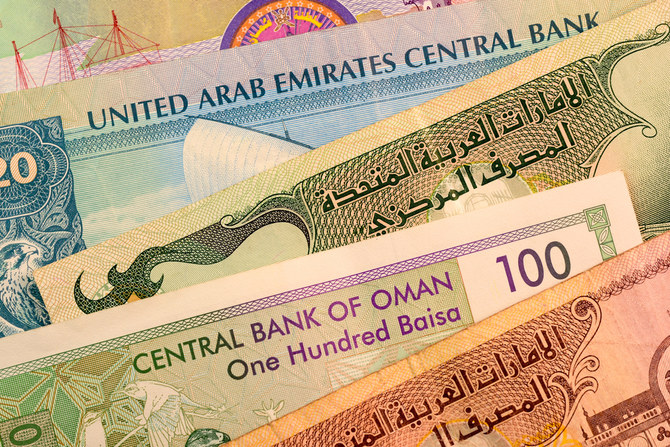
RIYADH: Gulf Cooperation Council central banks have held interest rates steady for the sixth time as the US Federal Reserve keeps its benchmark level between 5.25 percent and 5.50 percent.
As most currencies in the region are pegged to the US dollar, monetary policy follows the decisions taken in Washington, with policymakers opting to lock the rate at the level it has been since July.
The freeze comes as the rate-setting panel cites “a lack of further progress toward the committee’s 2 percent inflation objective.”
Vijay Valecha, chief investment officer at Century Financial, told Arab News: “This decision marks the sixth consecutive time that the central bank has chosen to keep rates unchanged. Market expectations have adjusted, now forecasting only one rate cut by year-end compared to the six anticipated at the beginning of 2024.”
He added: “The monetary policies of most central banks in the GCC countries, including the UAE, Saudi Arabia, Bahrain, Oman, and Qatar, typically mirror those of the Fed due to their currencies being pegged to the US dollar. Kuwait is the exception in the bloc, as its dinar is linked to a basket of currencies.”
Valecha continued by stating that as a result, interest rates in GCC markets are also anticipated to remain stable in the near future, which bodes well for the profitability of GCC banks.
This decision implies that the Saudi Central Bank, also known as SAMA, will maintain its repo rates at the current level of 6 percent.
The UAE central bank, along with Kuwait, Qatar, Oman, and Bahrain, also mirrored the Fed’s move.
Repo rates, which represent a form of short-term borrowing primarily involving government securities, underscore the close economic ties and financial dynamics between the GCC countries and the global economic landscape, particularly the US.
The US central bank also stated that it “does not expect it will be appropriate to reduce the target range until it has gained greater confidence that inflation is moving sustainably toward 2 percent.”
This indicates that rate cuts are not on the cards anytime soon, until inflation cools down and moves sustainably toward the 2 percent target set by the US Fed.
US car marker Lucid partners with KACST to advance EV technology in Saudi Arabia

RIYADH: US electric vehicle manufacturer Lucid Group and Saudi Arabia’s King Abdulaziz City for Science and Technology have inked a pact to boost EV technology development within the Kingdom.
As part of the deal, the California-based firm, in which Saudi Arabia’s Public Investment Fund holds a significant stake, will collaborate with KACST on joint research, utilizing the institute’s services, facilities, and products for dedicated research into advanced battery technologies and materials.
Additionally, they will conduct studies in aerodynamics, autonomous driving, and artificial intelligence technologies, according to a press release.
Faisal Sultan, vice president and managing director of Middle East, Lucid Group said: “Lucid’s goal is to inspire the adoption of sustainable energy by creating advanced technologies. This Memorandum of Understanding marks a key step towards achieving this vision, acting as a catalyst to advance and elevate the entire EV industry and inspire the adoption of sustainable transportation in support of the Kingdom’s vision for a more sustainable and diversified economy.”
The partnership between Lucid and KACST will also include research on electric vehicles, assessing their performance to ensure they are suitable for the climatic conditions in the Kingdom, the release added.
The joint research and development headquarters will be established at the national laboratories in KACST and are scheduled to launch during the third quarter of 2024.
“Using our state-of-the-art facilities, the research conducted under this project will advance electric vehicle systems and aid the development of technologies to support autonomous driving, in line with national aspirations for research, development and innovation in the energy and industry sector,” said Talal bin Ahmed Al-Sudairi, senior vice president of KACST for research and development sector.
The deal will see Lucid Group and KACST collaborating to leverage their expertise in scientific and technical research. Their joint efforts will focus on developing research programs geared toward creating technical solutions for the transportation and energy sectors, thereby bolstering the national economy.
In September 2023, Lucid opened its first plant outside the US in Saudi Arabia with an initial capacity to produce 5,000 EVs a year.
This came as the Kingdom’s government pledged to buy up to 100,000 vehicles from the company over 10 years.
Saudi Arabia open to financing up to 75% of certain industrial projects, says minister

RIYADH: Saudi Arabia is open to providing up to 75 percent of financing for certain industrial projects, a minister has revealed in a bid to incentivize foreign investment and private sector players.
During his discussion with several Qatari investors on the sidelines of the 52nd meeting of the Gulf Cooperation Council Industrial Cooperation Committee in Doha, Bandar Alkhorayef, the Kingdom’s minister of industry and mineral resources, highlighted the vast opportunities that Saudi Arabia’s untapped mining potential provides to global investors.
According to a release on X, he reaffirmed that in addition to the incentives provided by the industrial and mineral wealth system and the multiple sources of financing, the prepared infrastructure in more than 36 industrial cities around the Kingdom offers a sum of qualitative capabilities such as the production of prefabricated factories and long-term rentals.
Alkhorayef further lauded the private sector as the real engine for the Kingdom’s industrial development, noting that the National Strategy for Industry was initially built in partnership with the private sector.
This stems from the nation’s belief in the importance of private sector players and their ability to create promising opportunities in various fields, the release added.
In another boost to the industrial sector in the GCC, the minister headed the Kingdom’s delegation to the industrial committee meetings in Doha. The panel discussed a number of initiatives proposed by Saudi Arabia, including the Gulf Industrial Excellence Award.
In addition, the meeting reviewed the Arab industrial integration strategy and attempts to unify the support provided to the industrial sector in GCC countries, aiming to achieve economic growth and overcome challenges and obstacles faced in the industry.
Furthermore, developments in finding a unified definition for the Gulf national product and its proposed standards were discussed.
The meeting also stressed the importance of supporting the industrial sector in the GCC countries and integrating the roles of respective nations to aid in developing their respective national industries.
SAR sees 9% annual growth in cargo transported
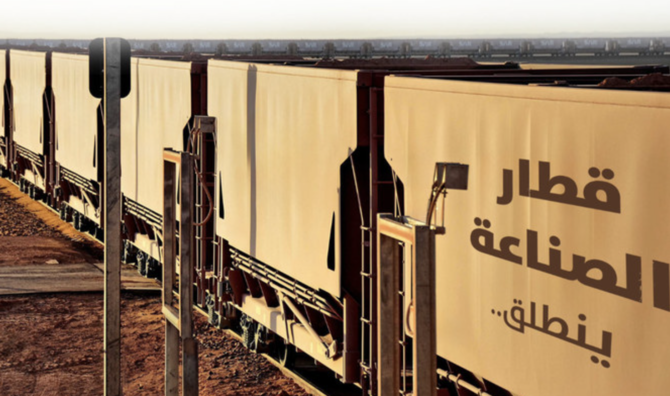
RIYADH: The volume of minerals and goods transported by Saudi Arabia Railways reached 6.34 million tonnes during the first quarter of 2024, an annual increase of 9 percent.
According to its quarterly report, SAR stated that over 2.7 million passengers utilized its services, marking a 23 percent growth compared to same period last year.
Passenger rides also increased by 3 percent, reaching a total of 8,252 trips across the East Train, North Train, and Haramain Express train networks.
Saudi financial sector expands ambitions, eyes foreign investment surge: report
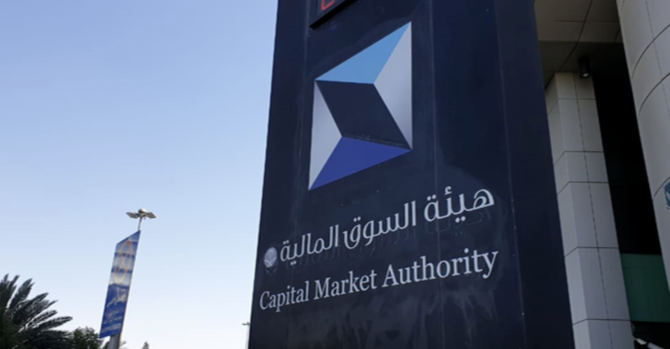
RIYADH: Saudi Arabia aims to enhance its stock exchange appeal to foreign investors, targeting 17 percent ownership of free float shares by 2024, a new report has revealed.
According to the 2023 Financial Sector Development Program document, the Saudi Capital Market Authority plans to boost assets under management to 29.4 percent of gross domestic product by 2024 by increasing the investment environment and attracting more investors.
The report, published annually, highlights the achievements in the financial sector, particularly the Kingdom’s ongoing progress in competitiveness indicators related to the capital market, as stated by Mohammed Al-Jadaan, minister of finance and chairman of the FSDP.
Commenting on the development of the financial sector, Al-Jadaan emphasized the importance of innovation and investment in talent and technology.
“We have placed innovation and investment in both talent and technology at the top of our priorities, because we recognize the importance of building a dynamic financial environment that allows companies — especially startups — to flourish and succeed,” the minister stated.
In line with its commitment to facilitating financing in the capital market, the CMA also plans to accelerate the pace of listings by welcoming 24 new companies in 2024.
Moreover, there will be a focus on supporting the development of new and promising sectors, with a target of having micro and small enterprises account for 45 percent of total listings.
Another area of emphasis is the deepening of the sukuk and debt instruments market, with the goal of increasing the debt-to-GDP ratio to 22.1 percent by the end of 2024. These measures aim to provide diverse financing options for companies and further stimulate economic growth.
“The capital market ecosystem continued its efforts to contribute to developing the financial sector and achieving the Saudi Vision 2030,” stated Mohammed El-Kuwaiz, chairman of the CMA.
“By approving rules for foreign investment in securities and streamlining regulatory procedures, we have witnessed a significant increase in foreign investments in the capital market, reaching SR401 billion ($106.9 billion),” El-Kuwaiz added.
The Saudi Central Bank also reaffirmed its commitment to adhering to international standards and best practices to enhance the strength and stability of the financial sector.
Initiatives such as developing digital solutions for supervising the financial sector and enabling local and international FinTechs demonstrate the Kingdom’s dedication to embracing technological advancements.
Furthermore, the Financial Academy unveiled its new strategy for 2024-2026, focusing on enhancing human capabilities in the financial sector through training programs and professional certifications.
The academy aims to increase the number of trainees and improve the quality of its services to meet the evolving needs of the industry.
The 2023 FSDP report highlighted significant progress across sectors like fintech and digital banking.
The Kingdom saw a surge in fintech companies, surpassing 2023 targets with 216 in operation and launching two digital banks.
Saudi Arabia claimed the top spot in the Corporate Boards Index among G20 nations and secured second place in various indices. Foreign companies relocated headquarters to the Kingdom, deepening the capital market.
Moody’s, Fitch, and S&P Global Ratings revised Saudi Arabia’s outlook to “Positive” and affirmed its “A1” and “A+” credit ratings, citing fiscal policy development, economic reforms, and structural improvements.
Saudi Arabia led venture investments in the Middle East & North Africa, securing 52 percent of total investments in 2023, and allocated SR10 billion to support small and medium enterprises across economic activities and regions in the first half of the year.



